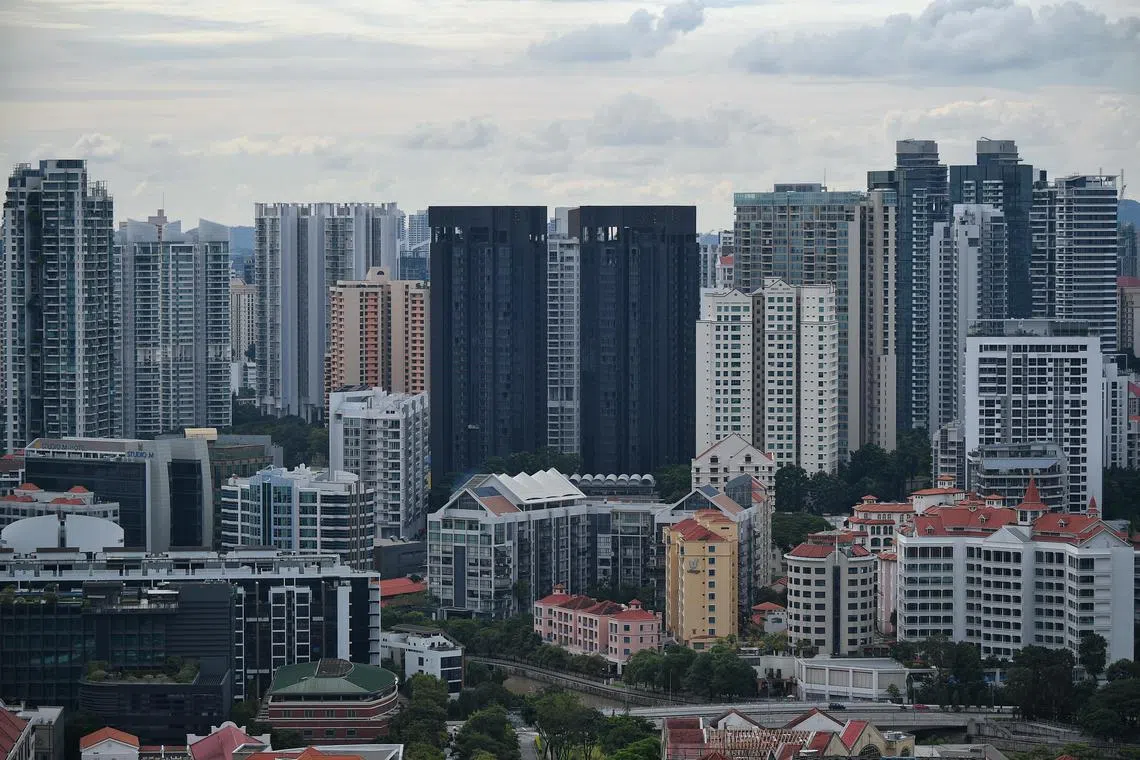Budget 2023: Buyer’s stamp duties for property purchases to be raised from Feb 15
Sign up now: Get ST's newsletters delivered to your inbox

The changes are expected to affect 15 per cent of all residential properties.
PHOTO: ST FILE
Follow topic:
SINGAPORE - Buyer’s stamp duties (BSD) for higher-value residential and non-residential properties will be raised with effect from Wednesday, Finance Minister Lawrence Wong said in his Budget speech on Tuesday.
This is expected to generate an additional $500 million in revenue a year. But the actual amount will depend on the state of the property market, he said.
For residential properties, the portion of the value of the property in excess of $1.5 million and up to $3 million will be taxed at 5 per cent, while that in excess of $3 million will be taxed at 6 per cent. This is up from the current rate of 4 per cent.
The changes are expected to affect 15 per cent of all residential properties.
For non-residential properties, the portion of the value of the property in excess of $1 million and up to $1.5 million will be taxed at 4 per cent, while that in excess of $1.5 million will be taxed at 5 per cent. This is up from the current rate of 3 per cent.
Mr Wong said these changes are expected to affect 60 per cent of non-residential properties, which are commercial or industrial properties.
Additional conveyance duties for buyers, which apply to qualifying purchases of equity interest in property holding entities, will also be raised from up to 44 per cent to up to 46 per cent.
Singapore currently taxes wealth in several ways, including property tax, stamp duties and the a dditional registration fee for motor vehicles.
The marginal BSD rate was last raised to 4 per cent from 3 per cent for the portion of the residential property value above $1 million in 2018, though there was no change for non-residential properties then.
Based on the Urban Redevelopment Authority’s 2022 data, nearly 55 per cent of all private residential transactions were worth at least $1.5 million, while 15.4 per cent were worth at least $3 million.
About 39.2 per cent were valued at between $1.5 million and $3 million, according to OrangeTee & Tie’s senior vice-president of research and analytics Christine Sun.
About 50 per cent of transactions may be affected by the increased BSD, using last year’s data as an indication, she said.
For new home sales, about 71.1 per cent of all transactions in 2022 were worth at least $1.5 million, while 46.8 per cent of resale deals hit that mark.
“Therefore, using last year’s data as a proxy and with more than 50 per cent of this year’s new launches in the city fringe and prime districts, we may expect the changes to affect new sales more than the resale market,” Ms Sun said.
Nevertheless, properties in the upper tier may not see a major impact as wealthy buyers are not likely to be deterred by the additional BSD, she said.
Moreover, properties priced at $3 million and above tend to have unique attributes and those above $10 million tend to be rare, which will continue to attract investor interest, Ms Sun said.
Mr Ismail Gafoor, chief executive of PropNex Realty, believes the announced increase in BSD “builds on the increase in property tax rates announced in the 2022 Budget”.
“Generally, we do not expect this change to impact home sales significantly as the increase in BSD payment should be manageable for buyers of homes priced over $1.5 million and $3 million. For instance, a buyer purchasing a residential property that is valued at $2 million will see BSD payable rise by $5,000, which is not a big leap for those buying homes in this price tier,” he said.
In Budget 2022, the Government had announced an increase in property tax rates that would take effect over two years
The property tax for owner-occupied residential properties was raised to 5 per cent to 23 per cent from 2023, and 6 per cent to 32 per cent from 2024, for the portion of the property’s annual value in excess of $30,000. This was up from 4 per cent to 16 per cent previously.
For properties that are not owner-occupied, including investment properties, the rate went up to 12 per cent to 36 per cent, from 10 per cent to 20 per cent.
Mr Desmond Sim, chief executive of Edmund Tie, said this tax revision will affect all buyers, including first-time buyers of residential and non-residential properties.


